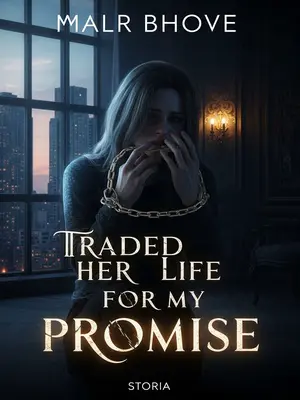Chapter 3: Last in Line
We lived in a run-down part of town, in a low, shingled house. The paint peeled in strips, and the roof leaked when it rained. The place always smelled musty.
The environment was terrible—potholes everywhere, puddles and mud after rain, and a garbage heap at the end of the block, stinking up the whole place, especially in summer when flies swarmed. The air always smelled faintly of rot. I dreamed of escaping.
As time went on, some families improved their lot and moved out. We kept saving for a place of our own. My mom would mark houses in the classifieds with hopeful circles. Each one felt like a step closer to freedom.
My parents worked at nearby warehouses—manual labor, hard work, low pay. They diligently saved a little each month, and over time, it added up. My mom kept a ledger in the kitchen drawer, every line a small victory. I used to peek at it, feeling a strange pride.
By my first year of middle school, we finally had ten thousand saved—enough for a down payment back then. My mom celebrated with a homemade cake, the first in years. I still remember the taste.
They started house hunting. The weekends were filled with open houses and whispered dreams. I let myself hope.
That’s when disaster struck. Bad luck always seemed to come just when things were looking up. It was like a curse.
My grandpa fell at work, breaking his back, needing surgery. The call came late at night, jolting us all awake. I’ll never forget the fear in my mom’s eyes.
It cost over four thousand, all paid by us. My mom wrote the check with shaking hands. I watched her, wishing I could help.
The hospital required a big deposit. My dad’s brothers claimed they had no savings. They shrugged and looked away. I felt the resentment simmer.
My dad didn’t hesitate—he took our house money and handed it over. He didn’t even ask my mom first. I saw her face when she found out—devastation.
My mom found out later and was furious. "There are three brothers—shouldn’t the bill be split? Why pay it all yourself?" She slammed the checkbook on the table. I flinched at the sound.
My dad said, "They don’t have the cash. We do. We can’t delay Dad’s surgery, right?" He said it like it was obvious. I wanted to scream.
The surgery couldn’t wait, and the money was gone, so my mom’s complaints were useless. She cried in the bathroom, thinking no one could hear. I did.
Afterward, when it came time to settle up, my uncles said they’d pay us back someday. They smiled and changed the subject. I watched the hope fade from my mom’s eyes.
My dad waved it off. "Whenever you have it, pay me." He never asked again. The money was gone for good.
But they never paid us a cent. The promise faded like an old receipt. I learned not to expect fairness.
Whenever my mom told my dad to ask, he’d say they were farmers with little income. He always had an excuse for them. It made my blood boil.
If my mom went herself, they’d play the poverty card. She’d come home empty-handed, more bitter each time. I hated seeing her like that.
"So what about our house?" my mom asked. Her voice was flat, defeated. The dream felt further away than ever.
"We still have a place to live, don’t we? We’ll save up again," my dad said, infuriating her. He always acted like things would work out on their own. I wanted to shake him.
"I’ve had enough of this moldy old place! Every extra day here is torture!" my mom yelled. She threw open the window, letting in the smell of garbage. The smell made me gag.
She never expected to stay so many more years. The dream of moving faded with each passing season. I stopped believing it would ever happen.
We could never save fast enough to keep up with rising prices. Every time we got close, the goalposts moved. It felt like running in place.
After missing that chance, we couldn’t afford a place anymore. The market left us behind. The disappointment was a constant ache.
By my sophomore year of high school, my mom couldn’t wait any longer. She borrowed from relatives, scraped together enough, and finally paid a down payment for a small two-bedroom apartment. She signed the papers with trembling hands, relief and anxiety mixing in her eyes. I hugged her, hoping it would all be okay.
That was just a year ago. We still hadn’t paid off the debts, and the mortgage was ongoing. The bills came in thick envelopes, piling up on the counter. I tried not to look at them.
Plus, I was starting college, with tuition and living expenses every year. The pressure was huge. Some nights, my mom would sit at the kitchen table, staring at the calculator until midnight. I’d hear her sighs through my bedroom door.
Even now, my dad could still give away my tuition—I just couldn’t understand his thinking. It was like he lived in a different world. I wondered if he’d ever change.
After my grandpa’s surgery, my mom stopped letting my dad touch the checkbook or cards. She hid them in her sock drawer. It became a ritual.
But after buying the condo, she let her guard down. With no savings left, every paycheck went straight to debt. The checkbook was a thing of the past. I thought we were finally safe.
But she’d been putting a little into that account every month for years—sometimes $10, sometimes $50—until, by the time I finished the SATs, there was just enough for tuition. She showed me the bank statement, pride shining in her tired eyes. I hugged her, feeling the weight of her sacrifice.
Since it wasn’t much, she kept the card in her coat pocket in the closet. She thought it was safe. We both did.
At some point, my dad found it and took it. He never said when. The betrayal stung.
Honestly, if Linda hadn’t played the pity card, my dad wouldn’t have touched that money. He was weak to tears, always had been. I wondered if he’d ever grow a backbone.
My mom never worried about my dad wasting money on himself—he was stingy with himself. His shoes had holes, and he wore the same jacket for years. He never bought anything new.
That’s just how he was—he’d eat and wear the cheapest things, just to be able to give generously to others, even if they never paid him back. He’d rather go without than let someone else suffer. It was infuriating.
He was always so understanding toward outsiders, too understanding. He’d say, "You never know what someone’s going through."
If he bought a roast at the store, and someone joked about wanting some, he’d go right over and cut off half for them. He never hesitated. It made me want to scream.
Back in the old neighborhood, if he ran into an old friend selling homemade jam, he’d buy two jars without a second thought, even if it cost over $30, making my mom gasp. She’d shake her head, but he’d just smile, like he’d done something noble.
If the warehouse handed out a box of apples for the holidays, he’d give most of them away before even getting home. Our fruit bowl was always half-empty. I stopped expecting to get any.
If someone else’s work boots wore out, he’d swap his own with them. He’d come home in shoes two sizes too big, saying, "They needed them more." I rolled my eyes every time.
If he got a bonus, he’d hand it all to someone who complained about being broke. My mom would find out weeks later, too late to do anything. The cycle never ended.
So my mom always said he couldn’t be trusted with money—he’d just give it away. She started keeping cash in her bra, just in case. I thought it was funny, but also sad.
Once, when the warehouse shut down for lack of orders, my dad worked at a construction site for half a month. The contractor didn’t pay him, saying he hadn’t been paid yet, but would pay my dad as soon as the money came in. My dad believed him, as always.
Months passed, and he never got paid. The contractor always had an excuse, and my dad bought it every time. My mom would fume, but he’d just shrug, like it was no big deal.
The contractor even cried about his own hardships, promising to sell his truck if things got worse. My dad patted him on the back, saying, "Don’t worry about me."
My dad told him not to sell the truck—it was his business’s image. "I’m not in a rush." He never was. It drove my mom crazy.
A few days later, we heard the contractor went to Florida for vacation with his family. They posted pictures online, all smiles and sunshine. My mom nearly threw her phone across the room.
My dad insisted, "How do you know he didn’t borrow the money for the trip?" He always found a way to excuse people. I wanted to shake him.
"You’re always making excuses for others!" my mom said, hands shaking with anger. She looked at me, her eyes pleading for understanding. I just nodded, feeling helpless.
Growing up, my parents fought countless times. Their voices were the soundtrack of my childhood. I learned to tune them out.
My mom was naturally gentle, but my dad had driven her to the edge, always ready to explode. She became someone I barely recognized. I missed the old her.
I didn’t blame her—who could put up with someone like my dad? She deserved better. I wished I could give her that.
They fought, but I never heard them mention divorce. It was like an unspoken rule—they’d fight, then move on. I wondered if they’d ever break the cycle.
I understood why—it hadn’t reached that point. My mom still held onto hope, even when it hurt. I wished she’d let go.
My dad’s only real flaw was his excessive generosity. He didn’t drink, gamble, or waste money. He never hit anyone, ate whatever was cooked, and wore the same work clothes all year. He was, in many ways, a good man—just not for us.
But that one flaw was like a stubborn rash—chronic and annoying. It never went away. It drove us all crazy.
My parents had married for love, and my mom still cared about him. I could see it in the way she looked at him when she thought no one was watching. I wondered if she’d ever stop.
But I was different. After a few childhood incidents, I became cold toward my dad. I built walls and kept my distance. It was safer that way.
In my mind, if a man can’t put his wife and child first, he’s a lousy husband and father. Sacrificing your family for others isn’t kindness—it’s selfish. He was just satisfying his own twisted need to give and feel important. I refused to play along.
So sometimes, I’d have the rebellious thought: it would be better if they divorced. Maybe then, we could finally breathe. Maybe then, my mom could be happy.
My tuition was back, and my parents stopped fighting. The house was quiet, almost peaceful. I waited for the other shoe to drop.
But for days, my mom didn’t speak to my dad and slept with me at night. She’d tuck me in, then lie awake staring at the ceiling. I wanted to comfort her, but didn’t know how.













